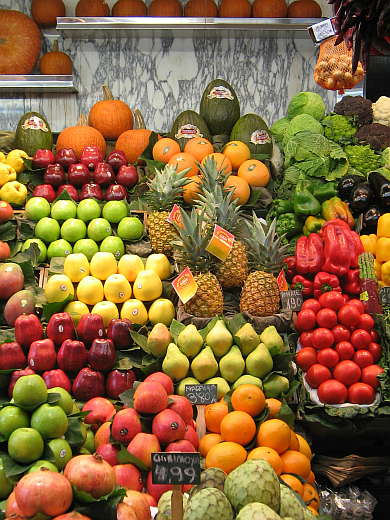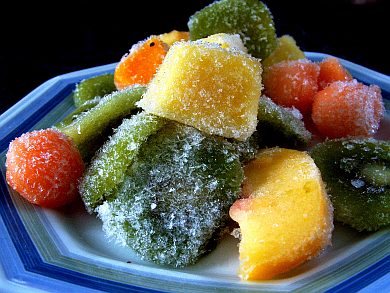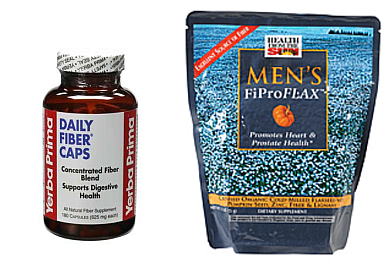Fiber for Weightloss? Use The Right Type.

Whole fruits and vegetables are the best sources of insoluble fiber.
It’s already been well-established that increasing dietary fiber has all kinds of benefits for you; lower cholesterol, lower risk of disease, better elimination and detoxification and even better weight management. And it’s also pretty well-established that most people don’t get enough dietary fiber in the first place. So it’s always been easy to make a case for fiber supplements, since they’re so inexpensive, safe and easy-to-use.
But there are different types of fiber, and they have different effects and benefits. So you want to make sure you’re using the right kind of fiber supplement for your situation. If you’re using or considering using fiber for weight management, there’s new information that points to a crucial difference between the type of fiber and whether it promotes weight loss or weight gain. It’s good food-for-thought for anyone trying to lean up and looking for safe, effective and non-stimulant options.
First, a refresher course on fiber. Dietary fiber comes exclusively from the indigestible parts of plant foods and is of two primary types; soluble and insoluble fiber.
Both soluble and insoluble fibers are important for overall health, and both can play a role in weightloss.
Soluble fibers are capable of absorbing liquids, water and fats, sometimes in huge quantities relative to their amounts. They help to solidify and add moisture to the bowel and can help with the absorption of some nutrients. Soluble fiber can also help by reducing the absorption of other nutrients like cholesterol.
Insoluble fibers cannot be digested, or absorbed, nor do they absorb anything themselves. Insoluble fiber passes out of the body essentially unchanged. Fruit and vegetable skins/peels are good examples and good sources as are 100% bran products. Since they don’t digest, insoluble fiber helps to scour and clear the digestive tract, pushing along food material to facilitate digestion and healthy elimination.
The study used test subjects genetically prone to obesity and given a high fat diet. Researchers compared the effects of supplementing with either soluble or insoluble fiber over a 45 week period. They reported dramatic differences between the weight loss effects of the two types, clearly favoring soluble fiber as better for weight loss. Why? One mechanism they suggest is that soluble fibers maximize calorie absorption whereas insoluble fibers increase calorie loss through the feces.
The study is also interesting because all the fiber-based weight loss products in the past have used soluble fibers. Glucomannan fiber, for example, is a soluble fiber that acts as an effective appetite suppressant. Appetite suppressants are good short-term approaches when beginning a weight loss program, but aren’t a good long term solution. To help keep weight off and maintain an energetic healthy metabolism, you have to re-establish the delicate balance between your appetite, food intake and energy expenditure as you lose weight. Appetite suppressants can help in the beginning, but if used day-in-day-out they’ll interfere with the body’s attempt to re-establish this important balance. Another type of soluble fiber used for weight loss is chitosan fat blocker, which works by absorbing and irreversibly binding to dietary fats.

In the winter, or whenever fresh produce is hard to come by, remember that frozen has all the fiber of fresh.
So when using fiber supplement for weight loss, choose a product with the highest amount of soluble fiber. You aren’t likely to see too many 100% insoluble fiber supplements since they’d be like taking sawdust and people wouldn’t use them. You have to get most of your insoluble fiber from whole fruits and vegetables with the skin, and 100% bran products. To that you can add a fiber supplement that contains some insoluble fiber. Two that we like are the Yerba Prima Daily Fiber Caps for an encapsulated supplement and Health From the Sun’s FiPro Flax for a versatile powder.
- Posted in Health, Nutrition and Science News
- 8 Comments




